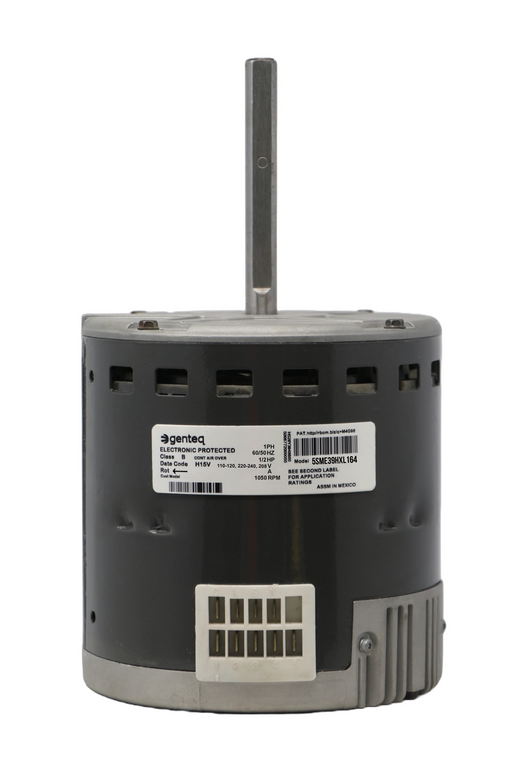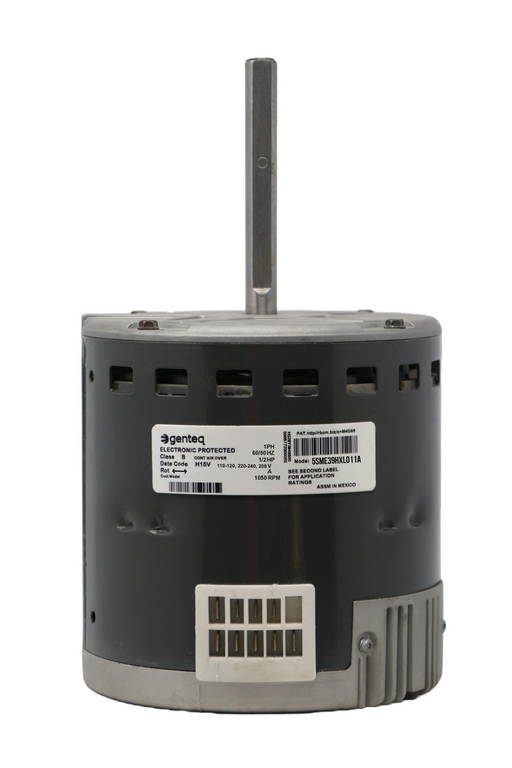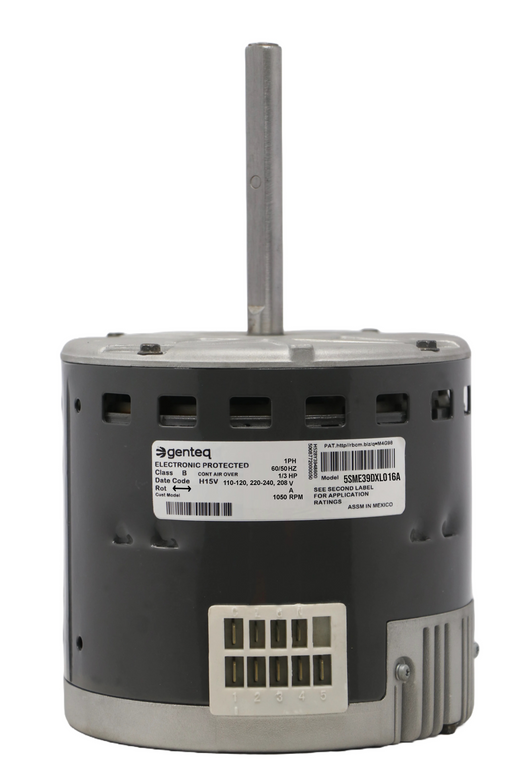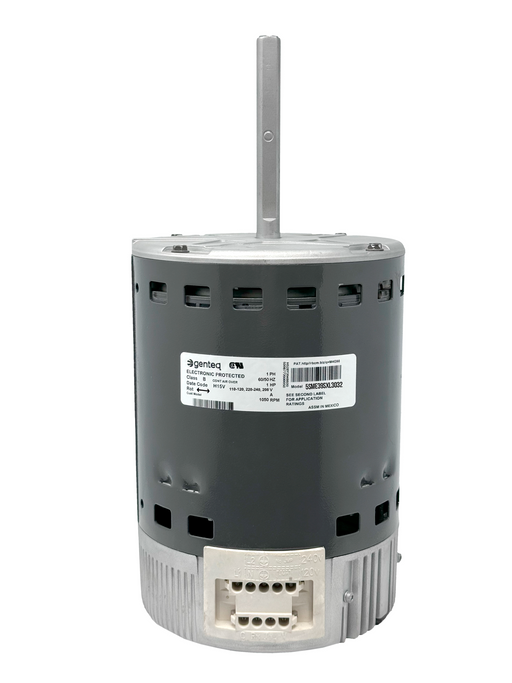(813) 440-8108

Is HVAC Hard to Learn? A Complete Guide to Getting Started
The HVAC industry offers a stable and rewarding career path, but many beginners wonder: Is HVAC hard to learn? The answer depends on your mechanical aptitude, problem-solving skills, and willingness to learn hands-on. HVAC training covers everything from electrical systems to refrigerant handling, requiring technical knowledge and practical experience.
In this article, we’ll break down the learning curve of HVAC, the skills required, the challenges you might face, and the best ways to get started. Whether you’re considering trade school, an apprenticeship, or self-study, we’ll provide insight into what it takes to become a skilled HVAC technician.
What Makes HVAC Challenging to Learn?
HVAC is not necessarily complex to learn, but it requires a unique mix of skills, including:
Technical and Mechanical Knowledge
HVAC involves working with:
-
Electrical systems – Wiring, circuit troubleshooting, and motor controls.
-
Refrigeration cycles – Understanding how heat transfer and cooling systems work.
-
Airflow dynamics – Proper ductwork design and air balancing techniques.
-
Mechanical repairs – Fixing compressors, blower motors, and condensers.
Hands-On Skills & Physical Demands
HVAC work isn’t just theory—you must apply knowledge in real-world situations. Expect to:
-
Work in tight spaces, attics, or rooftops.
-
Lift heavy equipment and use specialized tools.
-
Handle refrigerants safely and comply with environmental regulations.
Problem-Solving and Adaptability
Every HVAC system is different, and troubleshooting requires critical thinking. Diagnosing faulty components—like a failing blower motor or refrigerant leak—demands patience and analytical skills.
While HVAC can be complex, structured training and hands-on practice make it manageable for those willing to learn.
👉🏻 Understanding the Different Types of Blower Motors for HVAC Systems
How Long Does It Take to Learn HVAC?
The time required to become proficient in HVAC depends on your training path:
HVAC Training Programs
-
Trade School (6 months – 2 years) – The fastest way to get certified and job-ready.
-
Community College (2 years – Associate’s Degree) – Includes broader education in business and management.
-
Apprenticeship (3-5 years) – Earn while you learn under an experienced technician.
On-the-Job Learning
Even after formal training, gaining confidence in diagnosing and repairing HVAC systems takes 1-3 years of fieldwork. Some specialties, like commercial HVAC or refrigeration, require additional experience.
To speed up your learning curve, familiarize yourself with essential HVAC components, such as remanufactured blower motors, which are cost-effective alternatives to new parts commonly used in repairs. Browse our Remanufactured Blower Motors Catalog to learn more.
What Are the Biggest Challenges of Learning HVAC?
While rewarding, HVAC comes with challenges, including:
1. Technical Complexity
-
Understanding electrical circuits, refrigeration cycles, and airflow dynamics takes time.
-
Each brand and model has different diagnostic procedures.
2. Hands-On Learning Curve
-
Reading about HVAC is different from diagnosing a broken system in the field.
-
Learning to use tools like multimeters, refrigerant gauges, and vacuum pumps is essential.
3. Industry Certifications & Regulations
-
EPA Section 608 Certification is required to handle refrigerants.
-
Some states require an HVAC contractor’s license, which involves passing an exam.
Despite these challenges, a structured approach makes learning HVAC manageable.
👉🏻 ECM Motor vs. Variable Speed Motor: Understanding the Differences
Para confirmar la disponibilidad del producto, llame al [teléfono]. Algunos artículos podrían estar en stock, pero aún no estar listos para envío.

 Agotado
5SME39HXL164 Motor de soplador Genteq ECM X13 1/2 HP
Agotado
5SME39HXL164 Motor de soplador Genteq ECM X13 1/2 HP
5SME39HXL164 Motor de soplador Genteq ECM X13 1/2 HP
Motor remanufacturado por United HVAC Motors Garantía de reemplazo de 2 años (se aplican términos) Plug n Play - 100% programado...
Ver todos los detallesMotor de soplador Genteq 5SME39DXL016A ECM X13 1/3 HP
Motor remanufacturado por United HVAC Motors Garantía de reemplazo de 2 años (se aplican términos) Plug n Play - 100% programado...
Ver todos los detalles
Best Ways to Learn HVAC Efficiently
If you’re serious about learning HVAC, follow these steps:
Step 1: Enroll in a Training Program
Choose a trade school, community college, or apprenticeship for structured learning. Look for programs accredited by:
-
HVAC Excellence
-
PAHRA (Partnership for Air-Conditioning, Heating, Refrigeration Accreditation)
-
NATE (North American Technician Excellence)
Step 2: Gain Hands-On Experience
-
Shadow experienced technicians to see real-world repairs.
-
Practice installing blower motors, capacitors, and thermostats on training units.
-
Work with refrigerant recovery and charging tools.
Step 3: Study for Industry Certifications
-
EPA 608 Certification – Required for refrigerant handling.
-
NATE Certification – Boosts credibility and job opportunities.
-
Local HVAC License – If required in your state.
Step 4: Learn Common HVAC Components
Diagnosing and replacing key components—such as compressors, capacitors, and blower motors—will help you become a more skilled technician. If you’re new to HVAC, explore our Remanufactured Blower Motors to familiarize yourself with essential repair parts.
Is HVAC a Good Career Choice?
HVAC is an excellent career for those who enjoy hands-on work, problem-solving, and job security. Benefits include:
High Demand & Job Security
-
The U.S. Bureau of Labor Statistics projects a 6% growth in HVAC jobs from 2022 to 2032.
-
HVAC is essential for residential, commercial, and industrial buildings.
Good Earning Potential
-
Entry-level techs earn $40,000 – $50,000 per year.
-
Experienced technicians and business owners can make $80,000+ annually.
Opportunities for Advancement
-
Specialize in commercial HVAC, refrigeration, or automation systems.
-
Start your own HVAC business and increase your earning potential.
While HVAC requires effort to learn, it leads to a stable and rewarding career.
Addressing Common Misconceptions
Several myths about the HVAC profession may deter potential candidates. Clarifying these can provide a more accurate picture of the field.
Debunking the Myths
-
"HVAC is Only for Those Good at Math and Science": While a basic understanding helps, many successful technicians develop necessary skills through dedicated training and practice.
-
"The Work is Too Physically Demanding": The physical aspect varies by role. With proper techniques and tools, tasks are manageable, and many find the active nature of the job rewarding.
-
"It's a Dead-End Job": On the contrary, HVAC offers various advancement opportunities, including specialization, management positions, and even entrepreneurship.
👉🏻 Variable Speed Blower Motors: Enhancing HVAC Efficiency and Comfort
Final Thoughts: How Hard Is HVAC?
HVAC can be challenging, but with the right training and hands-on experience, anyone with mechanical aptitude can master it. The learning curve includes electrical systems, refrigeration, and troubleshooting, but structured training makes it manageable.
To accelerate your learning, familiarize yourself with key HVAC components, including remanufactured blower motors, which are widely used in repairs and installations. Check out our Remanufactured Blower Motors for high-quality, cost-effective HVAC parts.
Para confirmar la disponibilidad del producto, llame al [teléfono]. Algunos artículos podrían estar en stock, pero aún no estar listos para envío.

 Agotado
5SME39HXL011A Motor de soplador Genteq ECM X13 1/2 HP
Agotado
5SME39HXL011A Motor de soplador Genteq ECM X13 1/2 HP
5SME39HXL011A Motor de soplador Genteq ECM X13 1/2 HP
Motor remanufacturado por United HVAC Motors Garantía de reemplazo de 2 años (se aplican términos) Plug n Play - 100% programado...
Ver todos los detallesMotor de soplador Genteq 5SME39SXL3032 ECM 3.0 1 HP
Motor remanufacturado por United HVAC Motors Garantía de reemplazo de 2 años (se aplican términos) Plug n Play - 100% programado...
Ver todos los detalles


